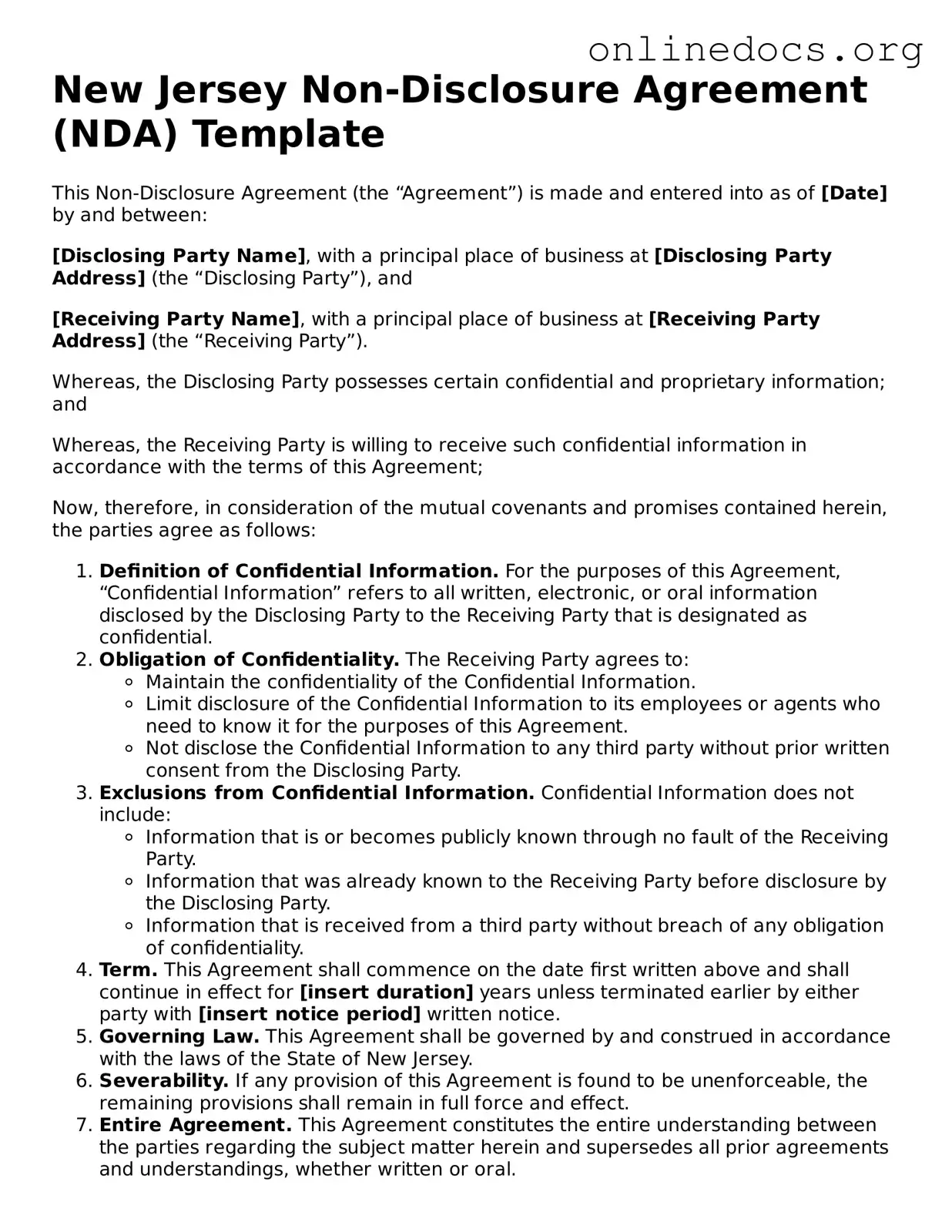When completing the New Jersey Non-disclosure Agreement (NDA) form, individuals often overlook essential details. One common mistake is failing to clearly identify the parties involved. It is crucial to specify the names of both the disclosing and receiving parties. Ambiguities can lead to misunderstandings and potential legal issues.
Another frequent error is neglecting to define the confidential information. The NDA should explicitly outline what constitutes confidential information. Vague language can render the agreement ineffective, as it may not protect the intended sensitive information.
Many people also forget to include the duration of the confidentiality obligation. Without a specified time frame, the agreement may be deemed indefinite, which could lead to complications in enforcing the NDA later on. Setting a clear timeline helps both parties understand their responsibilities.
In addition, individuals sometimes fail to consider the governing law clause. It is important to indicate that the agreement will be governed by New Jersey law. This clarification ensures that any disputes will be resolved under the appropriate jurisdiction, providing clarity and security for both parties.
Another mistake involves not including provisions for the return or destruction of confidential information. If the NDA does not address what happens to the information after the agreement ends, confusion may arise. Clear instructions on handling sensitive data can prevent future disputes.
Many individuals overlook the need for signatures. An unsigned NDA is not legally binding. Both parties must sign the agreement to ensure that they are committed to upholding its terms.
Additionally, people sometimes fail to review the agreement thoroughly before signing. Rushing through the process can lead to overlooked clauses or misunderstandings. Taking the time to read the entire document can prevent future complications.
Another common oversight is not seeking legal advice when necessary. While it is possible to complete the NDA independently, consulting with a legal professional can provide valuable insights. They can help ensure that the agreement is comprehensive and tailored to specific needs.
Some individuals neglect to keep a copy of the signed NDA. It is essential to retain a copy for personal records. This practice allows both parties to refer back to the agreement if questions or issues arise.
Lastly, individuals may not consider the implications of breaching the NDA. Understanding the potential consequences of violating the agreement is vital. Awareness of these implications can encourage compliance and foster trust between the parties involved.
